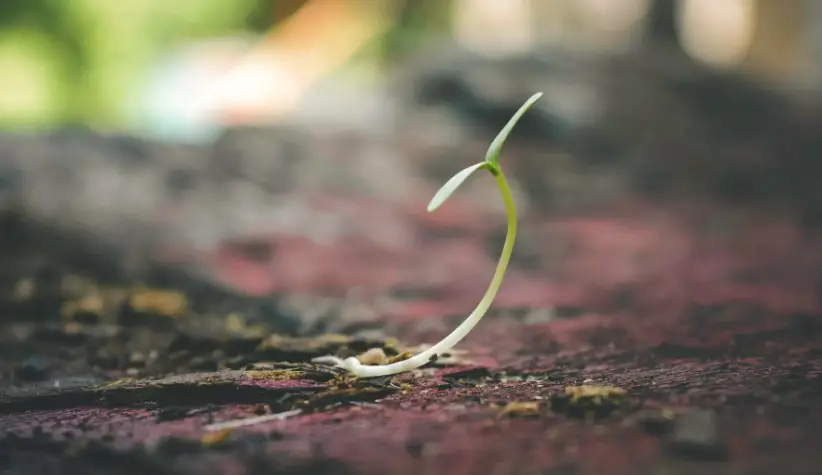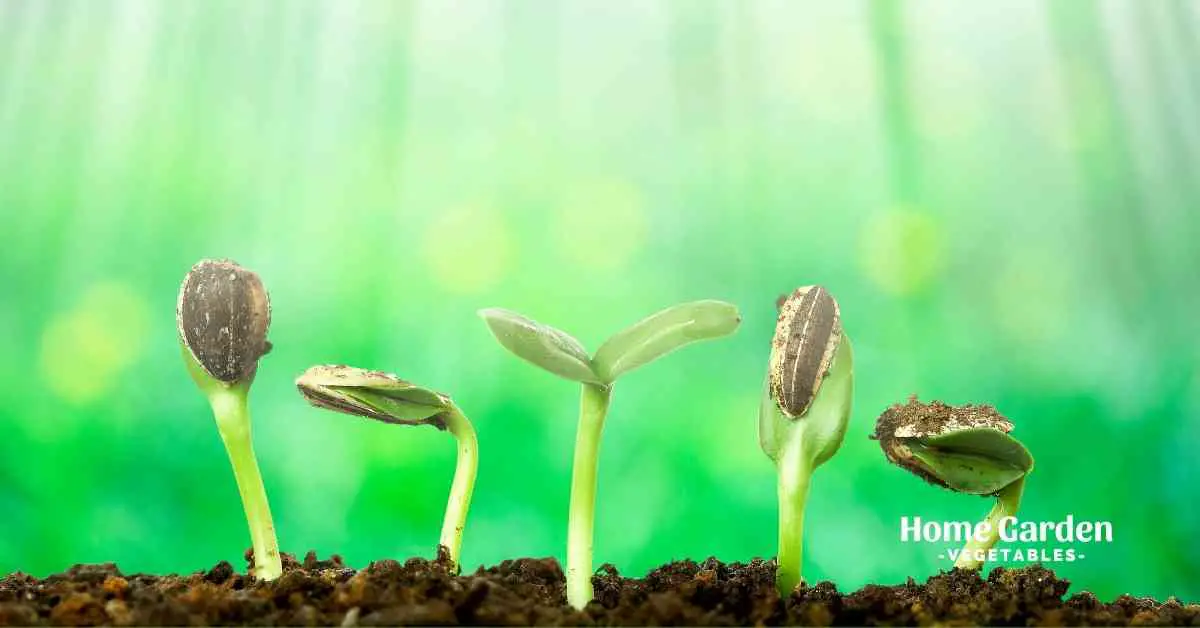Most individuals with a basic understanding of plant growth understand that seeds require light to develop. If you’re beginning seeds indoors, you’re probably aware that grow lights are required when natural light isn’t accessible. However, did you know that certain seeds and plants do not require light to germinate?

After you’ve planted your seeds in a seed tray, the following step may seem self-evident: they require light in addition to warmth. You may not want to be a master gardener, but if you take the time to understand how to nurture seeds through their most delicate stage, you could become the boss of your own garden.
Reader Poll: What online courses would interest you?
The Basic Requirements Needed For A Seed To Grow
Soil, water, and light are the three essential requirements for plant growth. These three are involved in photosynthesis. These fundamental ingredients are required in varying degrees, however, sunlight or light, in general, is not always required to sprout seeds. In fact, seeds that germinate in the dark are sometimes inhibited by the sun.
What Do Your Vegetable Seeds Require To Germinate?
Germination is the process through which a dormant seed comes to life by interacting with light, oxygen, soil, and moisture. Let’s go through the fundamentals of seed sprouting by looking at the components that are required.
Light
Those that need light sometimes don’t need to be covered with soil. This allows seeds to access the light that will suitably support the germination process. For those seeds that need darkness for germination, you need them to plant deeper in the soil to block out UV rays that could alter or halt sprouting.
Subscribe to our newsletter!
Oxygen
Seeds require oxygen and enough airflow to generate enough energy to emerge from dormancy. This is related to glucose, which aids in the process of aerobic respiration. Seeds generate energy from food storage at this stage, and they need oxygen to do so. Seeds can’t make enough energy to grow if there isn’t enough oxygen to counteract the water and carbon dioxide.
Moisture
Seeds have a little moisture on their own, but to come back to life from dormancy, they must be put in moist soil. Imbibition is a phenomenon that occurs when there is too much moisture in the air. The seed fills with water at this point, and enzymes inside the seed are triggered, which help pressurize the seed’s shell and aid the seedling in emerging from the soil surface.
When it comes to seed beginning, it’s critical to have the right quantity of moisture in your soil. Every seed has its own set of needs. Quinoa, for example, germinates with little moisture and only a thin layer of soil cover.
On the other hand, nasturtium and sunflower seeds have a thick seed coat that takes a lot of water to get through. In this case, too little moisture will either inhibit germination or cause the plant to die when it sprouts. These are frequently presoaked to ensure that they germinate.
Do Seeds Really Need Light?
The dark is the optimum environment for most seeds to germinate. The presence of light, which is necessary for seedling growth, may actually slow down the germination process. However, lettuce, celery, dill, and petunias require sunshine to sprout.
It’s easy to overlook that seeds are living creatures, so fussy is an understatement. An embryo of the plant and food are hidden under the thick exterior.
While your seeds may appear to be viable on the surface, they will only sprout if the circumstances are correct, or if they are exposed to the optimum quantity of moisture, light, and air.
Light is the distinguishing factor among these life-sustaining substances. To put it another way, seeds require varying amounts of light. That’s important to note why most seeds germinate better when they’re kept in the dark, as surprising as it may be. Germination may be hampered by exposure to light.
Getting Seeds Ready
Before you plant a seed, inspect them to make sure they are in good condition. Any seeds that look to be injured should be discarded, since your seed embryo may get harmed as well. The seeds should then be soaked overnight. This procedure weakens the seed coat, making germination easier.
In a small dish of warm water, soak the seeds for 12 hours or overnight. If you’re worried about immersing the seeds (which you shouldn’t be), wrap them in a moist paper towel and throw them in a plastic bag. To ensure that the seeds absorb maximum moisture, seal the bag.
What If Your Seeds are Planted Too Deep?
Seeds that are sown too deeply may not germinate. This is especially applicable to seeds that require sunshine to germinate or simply a thin layer of soil to protect them from the elements.
Because deeper soil is colder, planting your seed too deep may deprive seeds of the warmth they require for germination.
What If Your Seeds are Planted Shallow in the Soil?
A strong rain might wash away the soil that is covering your seeds, and eventually the seeds if they are placed too shallowly. Digging in the dirt also makes it simpler for animals to discover shallow seeds.
When the rain washes away the soil, seeds are completely exposed to squirrels, birds, and other little creatures who may wish to consume your seeds. Even if these seeds germinate, the roots of the plants may not grow adequately.
Conclusion
Seeds that require light to germinate should be started in a tray with grow lights or in bright south or north-facing window. Seeds can also be planted directly in a thin layer on the soil if the weather is sunny and warm enough. In the early spring, a greenhouse in direct sunshine can also offer adequate heat and light for seed germination.
Seeds that do not need to be exposed to light should be planted in trays. Cover them with black plastic to keep them from being exposed to light. When covering, keep an eye on the temperature to ensure it stays within the germination range. Plastic will retain a lot of heat and keep the soil damp, giving your tray some humidity.

